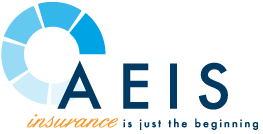Flexible Spending Accounts, or FSAs can have many benefits for employees who choose to utilize them, but mistakes can be made, and it is important to avoid them. In order to do that, you need to know what kind of an FSA you have, and what specific terms mean. Below, we explore four important FSA aspects you should be aware of before choosing to implement them into your own business. Read on to get started!
#1) There Are Different Types of FSAs
There are three types of FSAs, Health or Medical, Excepted Benefits, and Dependent Care. A health FSA can be used to pay for any qualified medical expense as outlined in the IRS Tax Code, Section 213(d). An excepted benefit FSA can be used solely for medical expenses related to dental and vision care. Generally, Dependent Care FSA funds can be used to pay for day care provided for a dependent child under the age of 13.
#2) Employee FSA Contribution Limits Exist
While the amount an employee is allowed to fund any of these types of accounts can vary based on overall participation by other employees in their company, health and excepted benefit FSAs have a maximum contribution of $2,700/year, and dependent care maximum contributions are $5,000/year.
The FSA is funded by employee payroll deductions with the full contribution amount elected by the employee divided evenly throughout the plan year. An employee can use the full amount of the FSA elected at the beginning of the plan year and ‘pay it back’ over the course of the plan year. Dependent care FSA funds can only be paid out to the employee or day care provider up to the amount that has been funded to date.
#3) FSAs Can Have Special Plan Features
FSAs can come with some plan features, making it important to know the differences between them. We discuss a few of the most common and important features below.
Runout Periods
The first is Runout Period. The Runout Period is a window of time at the end of the plan year that a plan participant is able to submit for reimbursement of claims that occurred prior to the end of the plan year. For example, a plan year runs from October 1 – September 30th, and an employee had a dentist appointment on September 18th. If the plan has a runout period of 30 days, the employee can submit their claim for that dentist appointment as late as October 30th to be reimbursed.
Grace Periods
A Grace Period is different than a Runout Period. The Grace Period is a window of time that cannot exceed 60 days following the end of the plan year where plan participants can make new claims to use up any unused balance in their FSA after the end of the plan year. For example, the plan year runs from October 1 – September 30 and has a 60 day grace period. The fore mentioned employee could have postponed their dentist appointment from September 18th to November 9th and it would still be eligible for reimbursement.
Rollover Provisions
For those employers who do not offer a grace period, they do have the option of offering a Rollover provision. A rollover provision allows employees to rollover an unused balance in their FSA from one plan year to the next. The maximum amount eligible for rollover is decided by the employer and cannot exceed $500. In order for an employee to be eligible for the rollover provision, they have to participate in the next plan year, even if they only contribute $1 for the year.
#4) The Impact of COVID-19
COVID-19 legislation temporarily changed many of the rules for FSA plans including the maximum amounts allowed for contribution, roll over amounts, and run out periods. Be sure to check with your plan administrator if you want to implement any of these changes and to be sure your plan continues to be in compliance with Federal requirements.
AEIS – Your Trusted Benefits Advisor
Contact our team for expert guidance to implement an FSA for your company and your employees.
If you’re looking for assistance with your employee health benefits plans, AEIS is here as a trusted advisor, advocate, and strategist. With over 35 years of expertise, we are ready to help you answer the "is a flexible spending account worth it" questions and find real solutions to your most pressing benefits questions for an easier, more complete, always compliant plan.



